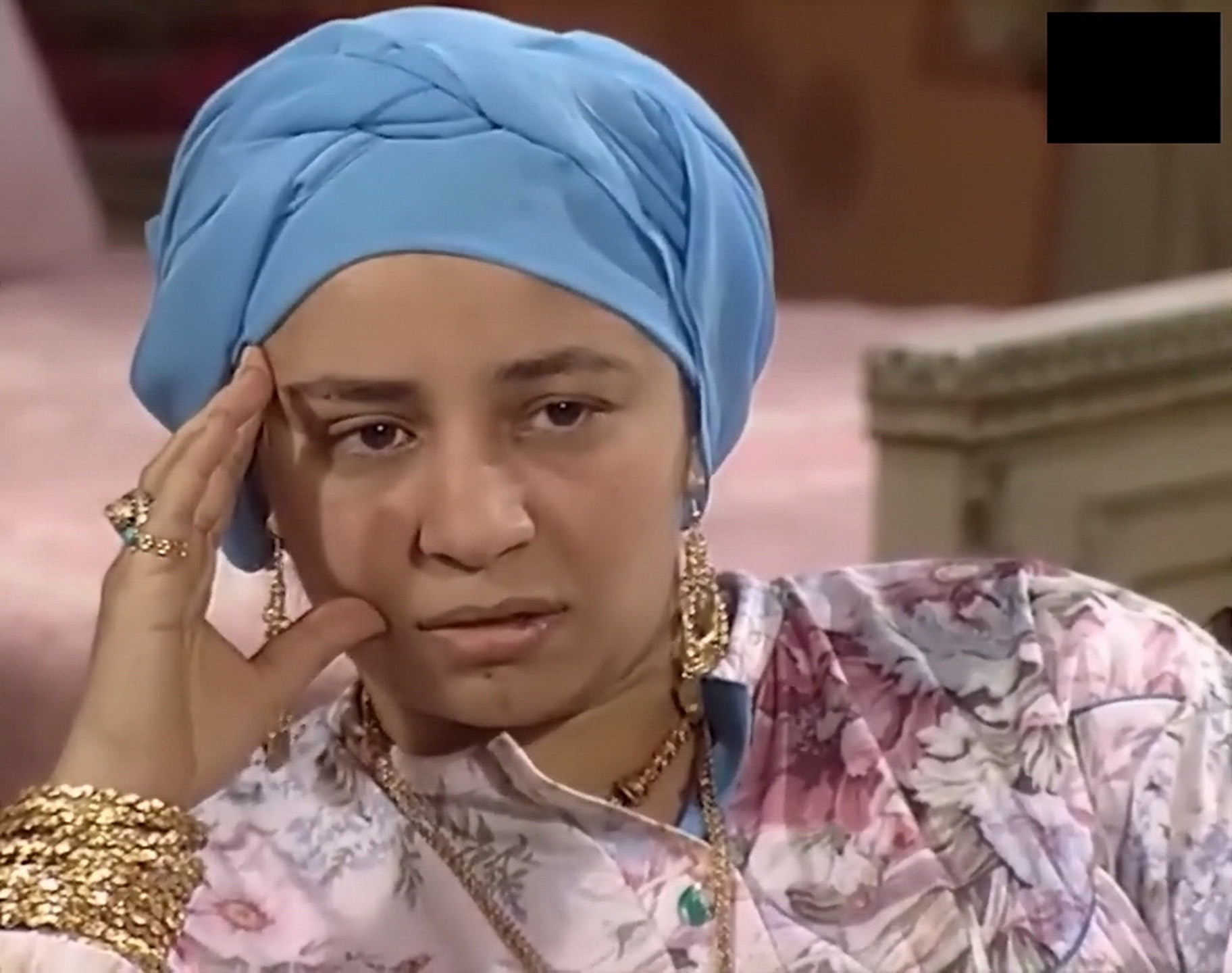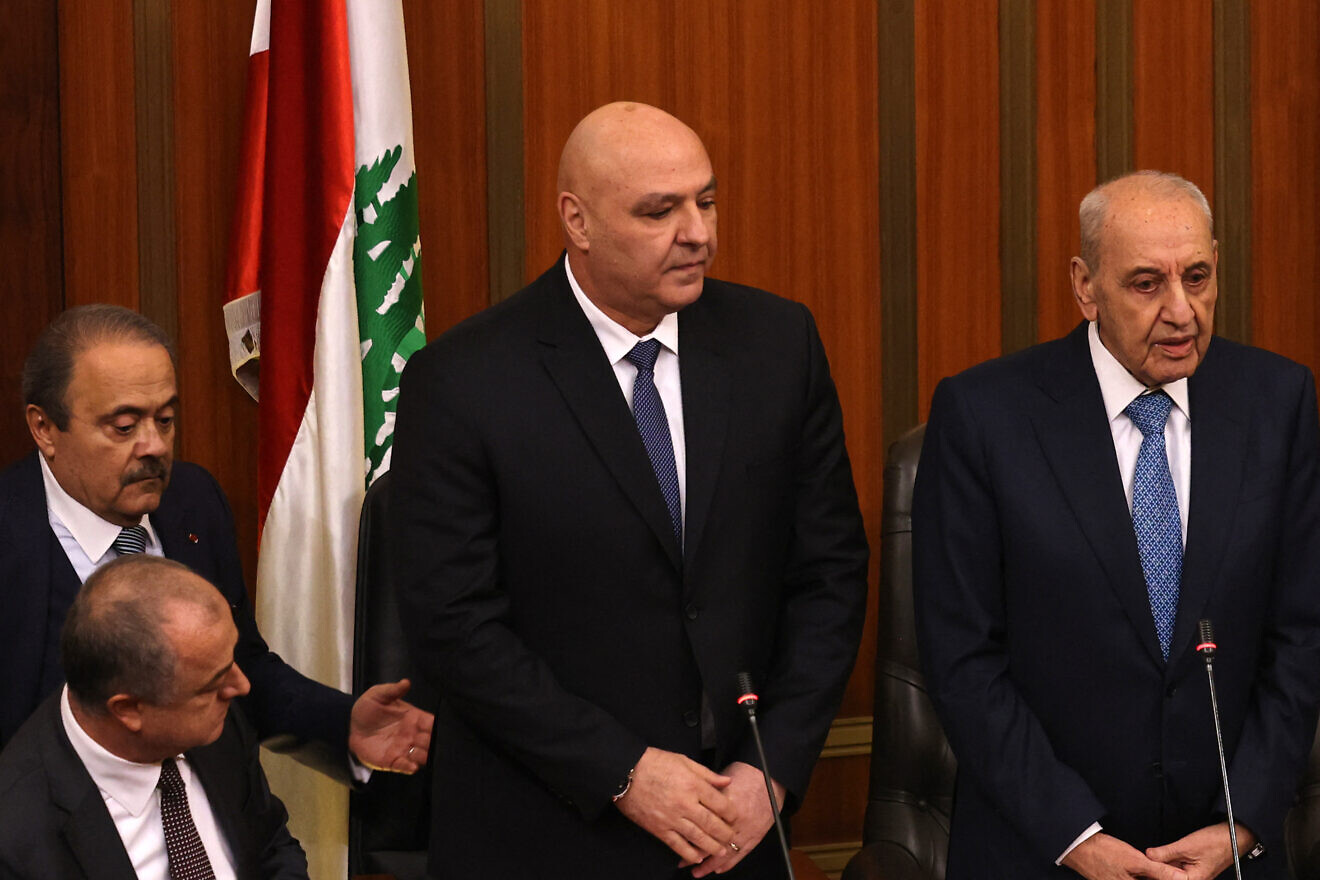Even as she shies away from the spotlight and avoids online self-promotion, her presence lingers, like the streetlights that continue to glow in the morning, even long after the night has faded.
Abla Kamel didn’t just act to entertain; she acted as though she wanted to be our close friend. In every scene, she held our attention as if she was gently holding our hand. Regardless of the script or her role, her acting transcended the character, making it seem as if the movie revolved not around the story, but around her.
Her warmth and relatability transcended the screens, permeating into internet meme culture. She’s emerged as one of the few Egyptian artists embodying the pop culture of today, conveyed through split-second expressions and emojis sent with a click.
Shaping Egyptian Internet Culture
Internet memes hold considerable cultural significance, mirroring the spirit of the digital era. Despite appearing as mere icons or emojis on a screen, they carry deeper meaning, conveying human emotions and narratives.
We’re immersed in the world of technology like never before; our cars feature Bluetooth, our TVs sync seamlessly with our phones, and we’ve honed skills like texting and searching information through Google. Yet, capturing and preserving information doesn’t always require traditional methods like reports or documentaries.
Memes have emerged as a modern form of internet documentation. Similar to books, memes collect and preserve cultural memories, ensuring they remain vivid and accessible across years and generations.
These digital fragments of Egyptian culture, whether images, videos, or text, swiftly shared and circulated, encapsulate shared experiences, which Abla Kamel can convey in mere seconds.
What set Abla Kamel apart was her ability to convey a spectrum of emotions in a single scene. The subtle cues in her face expressions and body antics spoke volumes to Egyptians familiar with their heritage.
Preserving Cultural Expressions
Expressions of joy, anger, sadness, and humor aren’t merely modes of communication; they can also strengthen the bonds within cultures and communities.
Abla Kamel’s memes, in particular, have enabled diaspora communities, even while living far from their homeland, to reconnect with traditional Egyptian cultural expressions, fostering a sense of unity and belonging.
Through memes, Abla Kamel’s portrayal captures various facets of Egyptian women, including the essence of rural women, solidifying their status as an iconic figure in society.
Among the most renowned is the ‘zaghrouta‘ – a vocal expression commonly used to convey joy or celebration in Middle Eastern cultures. Often heard at weddings, it embodies a distinctively joyous celebration by Egyptian women.
In moments of anger or frustration, Abla Kamel employs various cultural expressions, including the act of pointing her fingers at the sky to voice grievances to God—a well-known cultural practice among Egyptians.
Another gesture is the facepalm, a globally recognized expression. However, Abla Kamel’s meme depicts a uniquely Egyptian interpretation of the facepalm, characterized by its more assertive nature and often occurring multiple times in succession.
Abla Kamel’s memes not only preserve cultural expressions but also capture traditional Egyptian attire and home decor, showcasing an authentic Egyptian environment within the global internet culture.
One notable meme illustrates this with a picture of Abla Kamel adorned in gold jewelry, wearing a yellow abaya, and seated on a traditionally designed couch reminiscent of older generations’ home decor.
For young Egyptians residing abroad or growing up immersed in internet culture rather than traditional TV programming, Abla Kamel’s memes serve as a vital cultural touchstone, encapsulating not just Egyptian customs but also the essence of Egyptian identity.
These memes offer diaspora youth a tangible connection to their heritage, demonstrating that cultural identity isn’t solely reliant on language but also encompasses simple yet significant cultural expressions, even as subtle as a facepalm.





















Discussion about this post